Top 6 Health Benefits of Plums
Plums are incredibly nutritious and provide several health advantages. They are high in vitamins and minerals, as well as fiber and antioxidants, which may ... read more...help lessen your chance of developing a variety of chronic conditions. Plums can be eaten fresh or dried. Dried plums, often known as prunes, are believed to help with a variety of health issues, including constipation and osteoporosis. Let's discover the best health benefits of plums.
-
Plums are extremely nutrient-dense. They include more than 15 different vitamins and minerals, as well as fiber and antioxidants. Plums are relatively low in calories but contain a fair amount of important vitamins and minerals. One plum contains the following nutrients:
- Calories: 30
- Carbs: 8 grams
- Fiber: 1 gram
- Sugars: 7 grams
- Vitamin A: 5% of the RDI
- Vitamin C: 10% of the RDI
- Vitamin K: 5% of the RDI
- Potassium: 3% of the RDI
- Copper: 2% of the RDI
- Manganese: 2% of the RDI
Additionally, one plum provides a small number of B vitamins, phosphorus, and magnesium.
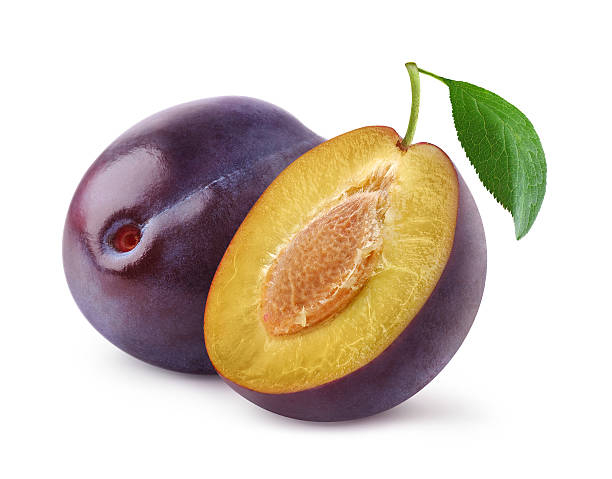
Contain Many Nutrients 
Contain Many Nutrients -
Prunes juice is widely recognized for its ability to alleviate constipation. This is due in part to the high fiber content of prunes. Prunes' fiber is largely insoluble, which means it does not dissolve in water. It helps to avoid constipation by increasing the weight of your stool and may increase the rate at which waste travels through your digestive tract. Furthermore, prunes and prune juice contain sorbitol, a sugar alcohol with inherent laxative properties.
Eating prunes has been demonstrated to be more successful than many other forms of laxatives, such as psyllium, a type of fiber commonly used for constipation treatment. In one research, those who ate 2 ounces (50 grams) of prunes every day for three weeks had better stool consistency and frequency than those who ate psyllium. It's crucial to remember that eating too many prunes at once might cause unpleasant side effects like diarrhea. To avoid this, keep to a serving size of 1/4-1/2 cup (44-87 grams) each day.
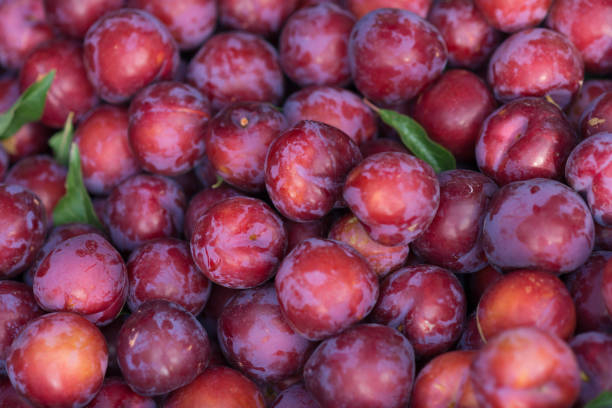
Relieve Constipation 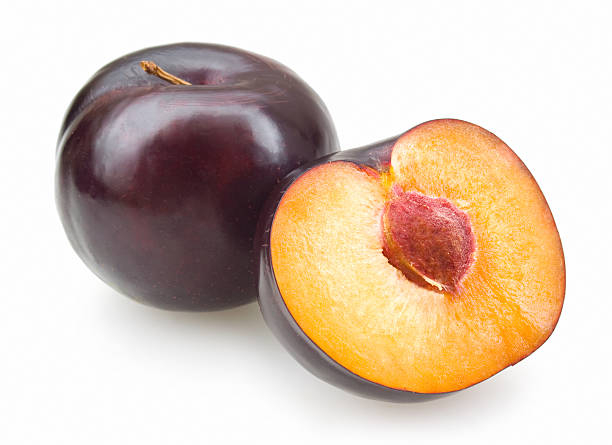
Relieve Constipation -
Plums and prunes are high in antioxidants, which assist to reduce inflammation and protect your cells from free radical damage. They are especially high in polyphenol antioxidants, which are beneficial to bone health and may help lower the risk of heart disease and diabetes. According to some research, plums have more than double the number of polyphenol antioxidants as other popular fruits like nectarines and peaches.
Many labs and animal studies have revealed that the polyphenols in plums and prunes have potent anti-inflammatory properties, as well as the potential to prevent cell damage, which often leads to illness. Prunes polyphenols dramatically lowered inflammatory markers related to joint and lung disorders in one test-tube investigation. Anthocyanins, a kind of polyphenol found in plums and prunes, appear to be the most potent antioxidants. They may offer significant health benefits, such as lowering the risk of heart disease and cancer.
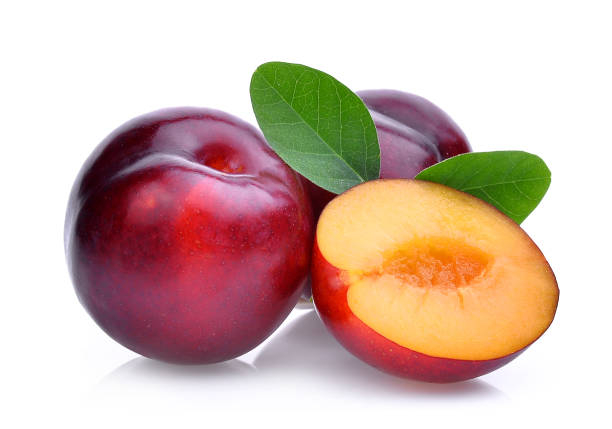
Rich in Antioxidants 
Rich in Antioxidants -
Plums include compounds that may aid with blood sugar regulation. Despite their high carbohydrate content, plums and prunes do not appear to induce a significant spike in blood sugar levels after consumption. This is due to their ability to boost levels of adiponectin, a hormone involved in blood sugar management.
Furthermore, the fiber in plums may contribute to their blood sugar effects. Fiber decreases the pace at which your body absorbs carbohydrates after a meal, enabling blood sugar levels to climb gradually rather than abruptly. Furthermore, eating fruits like plums and prunes has been linked to a decreased incidence of type 2 diabetes. However, because prunes are heavy in calories and easy to overeat, keep your portion proportions in mind. A good serving size is 1/4-1/2 cup (44-87 grams).

Help Lower Your Blood Sugar 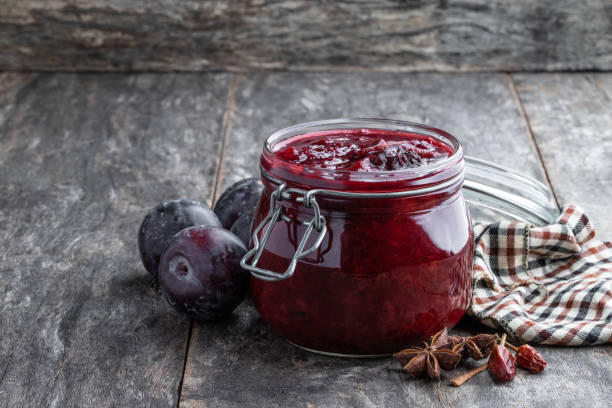
Help Lower Your Blood Sugar -
Prunes have the potential to improve bone health. Some research has connected prune intake to a lower incidence of devastating bone disorders including osteoporosis and osteopenia, both of which are characterized by low bone density. Prunes have not only been demonstrated to prevent bone loss, but they may also have the capacity to reverse existing bone loss.
It is unknown why prunes appear to have these beneficial impacts on bone health. Their antioxidant concentration and capacity to decrease inflammation, however, are considered to have a role. Furthermore, research shows that eating prunes may raise levels of some hormones involved in bone development. Prunes also include vitamin K, phosphorus, magnesium, and potassium, all of which have bone-protective properties. While all of these findings are encouraging, the majority of the research involving prunes and bone health is based on animal and test-tube studies.
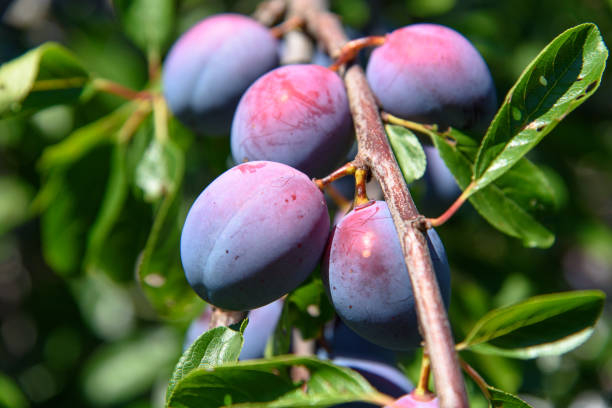
Promote Bone Health 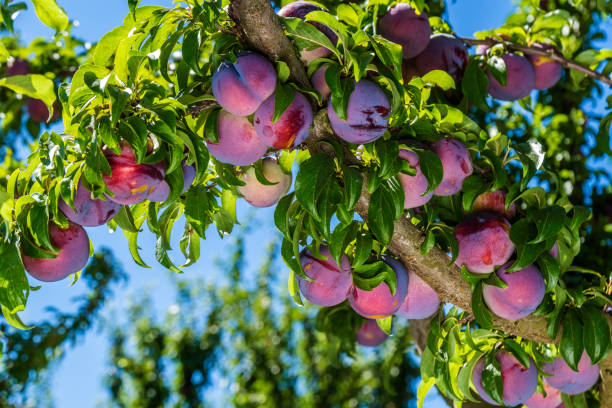
Promote Bone Health -
Regular consumption of plums and prunes may be beneficial to heart health. They've been researched for their ability to lower blood pressure and cholesterol levels, both of which are key risk factors for heart disease. In one study, individuals who drank prune juice and ate three or six prunes every morning for eight weeks were compared to a control group that drank merely a glass of water on an empty stomach.
Those who took prunes and prune juice had lower blood pressure, total cholesterol, and "bad" LDL cholesterol levels than those who drank water. Research indicated that males with high cholesterol had decreased LDL cholesterol levels after eating 12 prunes daily for eight weeks. Several animal experiments have yielded comparable results. In general, mice were given dry plum powder and plum juice tend to have lower cholesterol and higher "good" HDL cholesterol levels. These findings, however, cannot be applied to people.
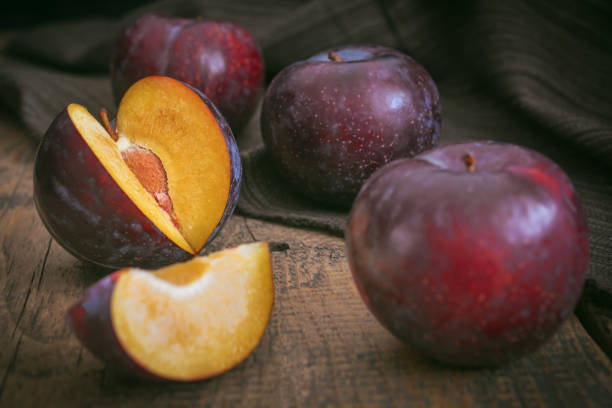
Benefit Heart Health 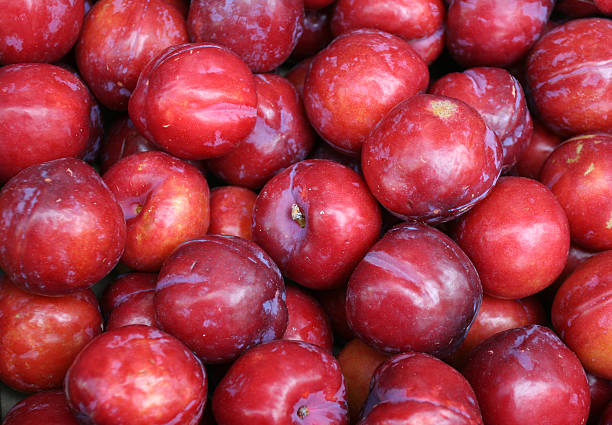
Benefit Heart Health



























